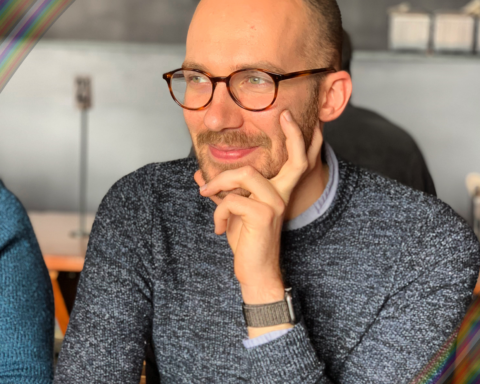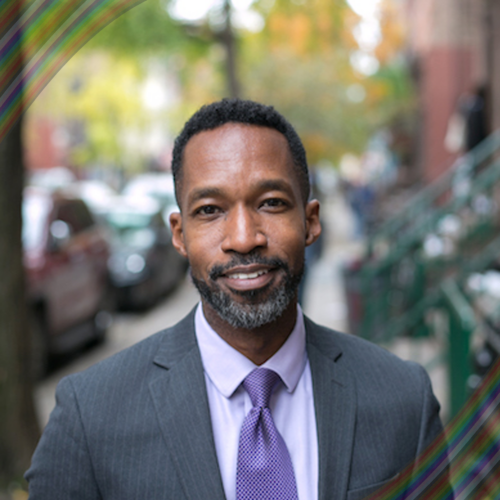Much like the phenomenon of New Year’s resolutions that pack gyms, and overwhelm our garbage with “bad” food, Lent has developed a reputation for a time in the liturgical calendar of giving up something usually pertaining to food. And before that, Fat Tuesday, a moment where folk overly indulge in the food that they will give up for the next 40 days, echoes the festive and often overindulgent times of Thanksgiving and Christmas. We give up that candy that is always around or that snack that always hits the right spot, the greasy potato chips, the fatty meats, the carbs, the sugar, the alcohol, the food that almost always gives us the sensation of pleasure. And then, we attach the results of said purging to how it may impact our bodies. 40 days of no sugar or fats will lead to weigh loss. 40 days of added exercise or another mile ran down the road will lead to a better physique.
And before we know it, our journey through the wilderness with Jesus, leading to the cross and eventually the resurrection becomes a journey of scarcity, body shaming, instant and toxic gratification of succumbing to societal norms of aesthetic and the “hot bod”. Not to mention, folk with history of eating disorders and body dysmorphia will continue to dodge their triggers as they “walk with Jesus” in a time where food seems to be front and center in the liturgical calendar.
But how did toxic ideas of diet culture and Lent become so intertwined? Lent often centers fasting, which is the choice to give up food or certain foods for a particular amount of time for spiritual benefit. Religious traditions throughout the centuries have held to fasting for different holidays and observances, and though food is central, the idea of fasting is set as an intentional action held by boundaries of time and spirituality. So fasting and the choice to abstain from food for religious reasons isn’t necessarily the culprit that invites toxic diet culture into our religious practices like Lent. The concept that betrays us and our bodies is actually the co-opting of fasting, framing a deeply spiritual practice within the concepts of oppression and capitalism.
Nadia Craddock says that diet culture is “telling us that there’s one way to be and one way to look and one way to eat and that we are a better person, we’re a more worthy person if our bodies are a certain way.” Systems of conformity, racism, queerphobia and capitalism creep into every part of our being, and yes that includes how we observe our most holy of seasons. The concept of “giving up” food or “going to the gym more” during Lent is the perfect portal key to hyper drive our need to conform to thinness and muscle gain instead of contextual health while framing it with the Divine. So, one may think that because I am thin or because my abs are showing, God will be pleased that this particular Lenten journey resulted in a better looking version of oneself. And that is just what capitalism and productivity want us to think and to do: to produce a result that society deems worthy.
We see this mixture of toxic diet culture with the Divine constantly…it is not a stranger. The Greeks and the Romans didn’t have a monopoly on depicting their gods as muscle men. As Lent approaches, we will be inundated with pictures of a Jesus and his followers who look more like gymnasts or supermodels than normal people. We will see images of a Jesus with a sixpack, and chiseled, hypermasculine features. We will be tricked into thinking the journey through the wilderness and to Jerusalem was more for exercise than for proclamation or salvation. Or that the carrying of the cross was easier due to the strength of Christ. These images, these ideologies, these theologies, corrupt life-giving theologies by telling us that ableism, physical strength, body image, and beauty will be the asset that will give us this magical, eternal life. When the reality is that the wonderful, unique, God-given bodies that we all possess are enough and that enoughness is the power we all hold.
Our health is not based on what size jean we can wear, thinness, or physique. Our bodies are complex, contextual, nuisanced systems that act and react differently. And just like our embodiment is unique, so can our practices surrounding the Divine and specific spiritual times.
So what if we reframe our observances surrounding Lent and food? What if we follow a Jesus that is more real, more normal, more accessible?
Here are some ways to reframe our Lenten practices and theologies around food:
Framing fasting as much more than food and absence. Fasting is a purposeful time, a time set aside to create space to reflect on oneself and soul. Set your intentionality around purpose, getting rid of the notion of production and outcome. Slow down your pace, taking in each moment with purposeful questions: How does this make me feel? What comes up for me while doing this action or practice?
Deconstructing diet culture in our own lives. This NPR article by Andee Tagle and Clare Marie Schneider is a great introduction to begin deconstructing how diet culture may play into your life. Tagle and Schneider interview multiple folks dedicated to ending body discrimination, and provide ways that diet culture may show up. This article, among others, read and enacted in tandem with liturgy, rituals, and spiritual practices is a great way to bring self-awareness to the faith community about body shaming and diet culture.
We must be better at talking about eating disorders in our faith communities. And being better means we need to educate ourselves about the ways in which systems, society, and yes, churches trigger many of these disorders. Education leads to realizations that eating disorders do not discriminate when it comes to gender, race, age, or any other point of diversity. The more we learn the better we can create space to have honest and intentional conversations around eating disorders and how they may intersect with our rituals and practices.
Getting to know our bodies is crucial in knowing what health means to us. Breath meditations and body scan meditations are great ways to connect with our bodies. They may open us up to places of tension, pain, or pleasure. How we move our bodies is important as well and making sure we are intentional about our limits. Medical checkups as well as mindful eating are crucial for health. Mindful eating reorients us to look at our food differently, slowing our pace of consumption, thinking about where it came from and really enjoying it…like REALLY ENJOY IT. And we must remember that each body is different and that is a beautiful thing.
As we journey through Lent, and other religious and spiritual seasons, it is vital we consider the systems of oppression that plague all of us, especially those who find themselves on the margins. Our spiritualities are not separated from our humanity nor are they immune to the forces of evil that deem us unworthy of self-love and care. It was the regular yet beautiful body of Christ that journeyed through the wilderness, that healed the sick and performed miracles, that ate consistently and then was executed by a state that deemed him too real. May we journey through this season, loving ourselves and our bodies in life-giving and in salvific ways.
Rev. Lee Catoe is the editor of Unbound and the co-host and co-producer of A Matter of Faith podcast. Check out the upcoming Unbound Lenten series, Journey through the Mist: A Spiritually Guided Lent, coming out Feb. 5th.






Unbound Social